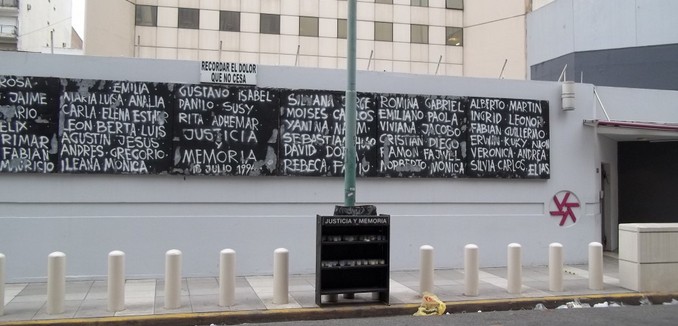Focusing on the aftermath of the 1994 AMIA Jewish community center bombing in Buenos Aires, in which 85 people were killed, Eamonn MacDonagh asks Has Argentina Turned Against its Jews? in the October 2014 issue of The Tower Magazine. MacDonagh writes that “the criminal investigation into the massive terrorist attack was chaotic, plagued with accusations of cover-ups, witness tampering and bribery.”
However, in 2006, prosecutor Alberto Nisman “declared based on his exhaustive investigation that the attack had been approved at the highest levels of the Iranian regime and issued international arrest warrants for a number of its senior figures.” These warrants, MacDonagh writes “seemed to be a major step forward for the victims of the massacre, their loved ones, and the Argentine Jewish community in general.”
Instead of aggressively seeking justice for an attack on its sovereignty and citizens, the Argentine government sought to placate the perpetrator.
The axe fell on January 27, 2013. In a barrage of tweets and a note on Facebook, President [Cristina] Fernández de Kirchner confirmed that rumors circulating since 2011 regarding secret negotiations with Iran were essentially correct. Argentina, she said, had cut a deal with Iran to settle the extradition dispute. The two countries were setting up a joint Argentine-Iranian commission comprised of jurists from both nations—with the participation of a few others from third countries—in order to “examine the documents presented” by the two sides. The proceedings of the commission were, naturally, to be held in Tehran. The Argentine court seeking extradition of the Iranian fugitives would be able to question the suspects, but only in Iran. At the end of the investigation, the commission would supposedly draw up a report that the parties would bind themselves to “take into account.”
The agreement represented an astonishing cession of sovereignty by the government of Argentina. It effectively invited the nation that has refused to extradite men suspected of murdering dozens of Argentine citizens to stand in judgment over the Argentine legal system. The reaction in the Iranian state media indicated that the regime there saw the agreement as Argentina’s abandonment of its extradition request; indeed, as its abandonment of any accusation of Iranian involvement, and a commitment to jointly investigate the murders all over again from the start.
Noting that Argentina had “debased” itself by appeasing Iran, MacDonagh observes, “the Iranians chose well when they decided to murder Jews in Argentina and not somewhere else.”
[Photo: Nbelohlavek / Wikimedia ]




